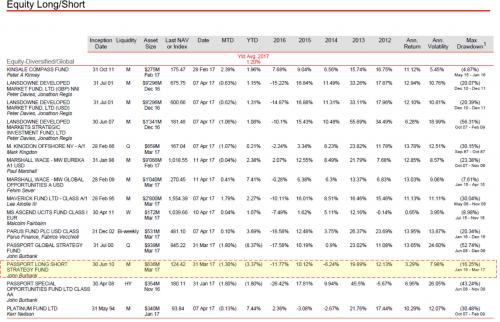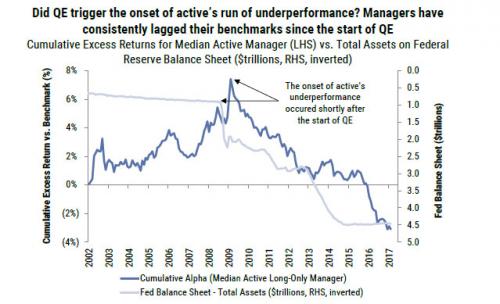We almost made it a full month without a prominent hedge fund shuttering – an eternity in an age when ETFs and passive vehicles soak up several billion in capital each day at the expense of “active” managers – and then Bloomberg spoiled the streak when it reported that John Burbank, one of the handful of investors who made a killing from shorting subprime, and head of the $2.4 billion Passport Capital is shutting down one of his core hedge funds, the latest in a string of closings hitting the industry.
Passport Capital’s Long-Short Strategy Fund is winding down and will return money to investors. The fund, which had an AUM of $833 million as of December 31, and $636 million as of March 17 according to HSBC, lost 2.1% in the first two months of this year. In 2016 the Long-Short fund lost 11.8% reversing its 2015 gains, when Passport Long/Short gained 10.1%.

A catalyst for the closure may have been a January 2017 decision by the San Bernardino employees fund to pull its funds from Passport.

Bloomberg adds that the firm’s flagship Passport Global Strategy Fund will remain open.
A recent report by Hedge Fund Research showed that more hedge funds closed in 2016 than in any year since the financial crisis. Also on Wednesday, Guard Capital told investors that it’s closing its $885 million macro hedge fund. Last month, former Goldman Sachs trader Eric Mindich said he’s winding down his $7 billion firm, Eton Park Capital Management, which was one of the biggest hedge fund startups when it launched 13 years ago. In September, Richard Perry threw in the towel on his almost three-decade-old hedge fund.
Many more will follow, because as Goldman explained earlier this week, in a centrally-planned market, one which never falls, active returns are no nearly enough to prevent an LP exodus.














Leave A Comment